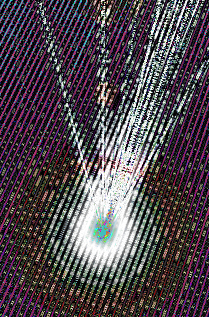Undergrad allows quantum leap
 An Australian uni student’s second-year homework has been picked up by Amazon quantum researchers.
An Australian uni student’s second-year homework has been picked up by Amazon quantum researchers.
University of Sydney science undergraduate Pablo Bonilla Ataides has tweaked some computing code to effectively double its capacity to correct errors in quantum machines.
The simple but ingenious change to quantum error correcting code caught the attention of quantum researchers at the Amazon Web Services (AWS) Center for Quantum Computing and the quantum technology programs at Yale University and Duke University in the United States.
“Quantum technology is in its infancy, partly because we haven’t been able to overcome the inherent instability in the machines that produce so many errors,” Mr Bonilla says.
“In second-year physics I was asked to look at some commonly used error correcting code to see if we could improve it. By flipping half of the quantum switches, or qubits, in our design, we found we could effectively double our ability to suppress errors.”
The research has been published in Nature Communications.
The results of the study will feature in Amazon’s arsenal of error correction techniques as it develops its quantum hardware.
“This research surprised me,” said Dr Earl Campbell - a senior quantum research scientist at AWS.
“I was amazed that such a slight change to a quantum error correction code could lead to such a big impact in predicted performance.
“The AWS Center for Quantum Computing team looks forward to collaborating further as we explore other promising alternatives to bring new, more powerful computing technologies one step closer to reality.”
Assistant Professor Shruti Puri from the quantum research program at Yale University said her team is interested in using the new code for its work too.
“What amazes me about this new code is its sheer elegance. It’s remarkable error-correcting properties are coming from a simple modification to a code that has been studied extensively for almost two decades,” Assistant Professor Puri said.
“It is extremely relevant for a new generation of quantum technology being developed at Yale and elsewhere.
“With this new code, I believe, we have considerably shortened the timeline to achieve scalable quantum computation.”
Mr Bonilla, a Dalyell Scholar at the University of Sydney, has started his honours year in quantum computing in the School of Physics.







 Print
Print